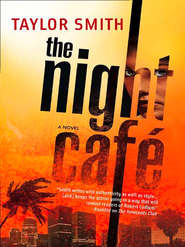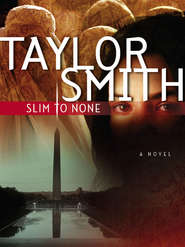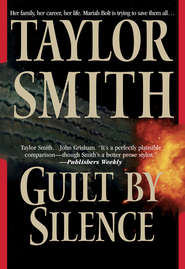По всем вопросам обращайтесь на: info@litportal.ru
(©) 2003-2024.
✖
Liar's Market
Автор
Год написания книги
2019
Настройки чтения
Размер шрифта
Высота строк
Поля
“Well, he died with his boots on, anyway. Dropped dead of a heart attack while reviewing the troops. All Army, all the way.”
MacNeil didn’t sound too broken up about it, the Gunny thought. Bad blood between them, maybe?
The younger MacNeil was about as different from the General as it was possible to be. Drummond MacNeil was in his late forties, with a thick head of hair that was considerably longer than the Gunny thought appropriate, even for a civilian. It took constant raking to keep the silvery mop from spilling into the man’s perpetually amused eyes. MacNeil always looked like the whole world was walking around with “KICK ME” signs stuck to their backs while he was the only one in on the big yuck.
The Gunny focused on his monitors so MacNeil wouldn’t see his frown of disapproval. The General, by contrast, had been a towering mountain of a man—not a Marine, of course, but pretty damn tough just the same. Once, on a visit to the Pentagon, Jenks had seen the old man’s portrait hanging in a corridor. Built solid, buzz-cut and stern-looking, General MacNeil had radiated leadership. The Gunny would’ve followed that guy into any field of action he named, and so would just about every Marine he knew.
But the son was another kettle of fish. Had never even served in the military, which must have been a real disappointment to the old man. The Gunny had a son himself, and the kid’s first words, swear to God, were Semper Fi. (Of course, Jenks had coached the baby for months, much to his wife’s disgust, but still…) Now six, Connor practically slept in his miniature size cammies and could hardly wait to join the Corps.
MacNeil the younger hadn’t gone the military route, though. Apparently he’d washed out of West Point and avoided the service altogether after that, trading instead on his rep as a Yale man. The Gunny had heard people in a position to know say Drummond MacNeil had done more partying than studying at the Ivy League school. Only the family’s connections had swung his admission and protected a bare “C” average. After spending most of the seventies swanning around beaches, bars, and no-brainer jobs, MacNeil had apparently used those same connections to land himself a job at Langley.
Still, he must have done something right at the Agency, the Gunny conceded, since he’d ended up with this plum London job and, by all reports, was on the fast track to the top. Go figure. Her Majesty’s official diplomatic list identified MacNeil as a trade counselor, but a select few knew he was actually chief of the CIA’s London station.
“Anyway, sir, did you need anything?” Jenks asked him.
“I just stepped out of the meeting to see this guy in,” MacNeil said, nodding at the monitor as the French ambassador’s car pulled up to the double front doors. “I was also hoping to spot my wife. Has she shown up yet, do you know?”
“I haven’t seen her, sir.”
Now, that’s what wasn’t fair, the Gunny thought. The guy was married to a great girl, his second wife, by all accounts. Carrie MacNeil was young, pretty, and nice as all get-out. The MacNeils’ son, Jonah, was in Connor’s kindergarten class at the American International School, and Carrie was one of the hardest-working parent volunteers there. Their boys always ended up playing together at embassy family functions, like the Fourth of July picnic and the annual Christmas party, where by tradition the biggest Marine in the detachment dressed up as Santa and handed out presents to the diplobrats and assorted other embassy offspring. And when Carrie got herself done up to the nines for some fancy dress function, with her long, reddish hair and those shy, gray-green eyes—well, all the Gunny knew was that he’d had to warn several of his randier guys that wives of senior staff (especially the CIA head of station, for chrissakes) were strictly off-limits.
“She’s supposed to be coming in for this reception and dinner of the ambassador’s,” MacNeil was saying. “Wives were originally invited to both, but then the ambassador’s wife begged off dinner, so now the other wives are uninvited and it’s turned into a working dinner. I tried calling Carrie to let her know, but there’s no answer at the house and she doesn’t seem to have her mobile turned on. What’s the point of having a cell phone, I keep asking her, if you don’t turn it on? That’s why I got her the damn thing.” MacNeil leaned closer to the monitors to scan the surrounding streets. “Jesus! Who can spot anybody under all these umbrellas. Anyway, Gunny,” he added, straightening as the French ambassador swept into the lobby, “I’ve got to get back upstairs. Could you let her know when she comes in that dinner’s off? As long as she’s here, she might as well come up for the reception, though, meet a couple of senators.”
“I’ll pass the message on, sir.”
But the Station Chief was already out the door, embracing the Parisian envoy like a long-lost brother and leading him back into the embassy’s inner sanctum.
The Gunny sighed and turned again to his monitors, studying the feeds from the street outside, wondering which umbrella belonged to Carrie MacNeil, and how she’d feel about finding out she’d been uninvited to the ambassador’s dinner after trekking out in this dismal weather.
Gunnery Sergeant Jenks wasn’t the only one in Grosvenor Square on the lookout that afternoon.
Across from the embassy, a hard-eyed man was parked in a squat London cab with its service lights switched to the “Off Duty” position. The cab was parked out of sight next to a London branch of the Canton-Shanghai Bank. A knit black watch cap was pulled low over his forehead, completely obscuring his hairline, but the thick black stubble on his chin and his heavy moustache suggested a heritage rooted anywhere around the Mediterranean or beyond—which could mean Spain, Italy, Greece, India, or any one of half a dozen Middle Eastern countries. There were so many immigrants in London nowadays that the man’s swarthy appearance was completely unremarkable.
In fact, this man’s ancestors hailed from the Caucuses, but he himself had been born and bred in an east-end London suburb only four miles from where he now sat waiting for his target to appear out of the mist.
National Gallery, Trafalgar Square
4:28 p.m.
The clerk at the youth hostel near St. Paul’s Cathedral had told Karen Ann Hermann and her two girlfriends that morning that heavy rain was predicted to begin in the afternoon and continue for the next couple of days, so the girls had decided to see the changing of the guard at Buckingham Palace first thing, while the weather was still on their side. From there, they’d wandered up to Trafalgar Square to feed the pigeons, then ducked into the National Gallery across the road as the rain moved in.
It was late afternoon when Karen, sitting on a padded bench near the gallery’s Leonardo etchings, consulted her much-thumbed guide book, her finger tracing a map of central London.
“The American Embassy’s just a few blocks from here,” she told her friends. “I think I could run over there and be back in an hour or so.”
Kristina Finch looked doubtful. “Maybe we should go with you.” The girls had been roommates at the University of Maryland.
“Seems like a waste of time for you guys if you’re going to bother registering,” said Karen.
Caitlin Bercha, the third in the group, had lived across the hall from the other two. “You don’t really have to, you know. That’s just something you do in places where there might be a revolution or something. Not much chance of that here.”
“Yeah, plus we’re only going to be here for ten days,” Kristina added.
Karen hesitated, then exhaled wearily, the much-put-upon sigh of youth everywhere. “I know, but I promised my parents.”
“But it’s pouring out there. You’ll get soaked walking all that way.”
“Why don’t you just tell them you registered?” Kristina suggested brightly.
“Yeah! How are they ever going to know?” Caitlin asked. “Then we can see if we can get some stand-by tickets for the theater tonight. The guy at the youth hostel said they disappear fast, so we should get to the box office early.”
Karen looked from one eager face to the other, sorely tempted. But then her conscience kicked in. She was an only child and her parents worried more than most. She couldn’t lie to them.
“I can’t. I promised. Look, I’ll tell you what. How about if you guys go over and see about the tickets, and I’ll do this embassy thing, and then we’ll meet up at, umm…” Her forefinger slid across her guidebook map. “Leicester Square. That’s in the theater district.”
The two other girls exchanged glances. “I don’t know,” Caitlin said. “Maybe we’d better stick together.”
“No, really, guys, this is a good idea. You go for the tickets and I’ll do this. No point in all of us wasting what little time we have.”
“Are you sure you’ll be all right?”
Karen waved away their worries and gathered up her things. “I’ll be fine.” She shrugged into her long tan raincoat, leaving her braid inside and flipping up the collar. From her pocket she withdrew a black knit tam which she pulled onto her head. “Watch for me at Leicester Square—say around six-thirty, just to be on the safe side. I don’t want to leave you guys hanging around in the rain.”
So, the plans were made.
Karen left her friends with a smile on her face, secretly glad for a little quiet time as she stepped out onto the wide, white front steps of the National Gallery and popped open her black travel umbrella. Not that the streets around Trafalgar Square were all that quiet, what with the swish of tires on wet pavement and the roar and honking of rush hour traffic. But the average teenage girl abhors a conversational vacuum, so Karen had been inundated with high-pitched chatter almost non-stop since she and her two friends had met up at Dulles Airport three days earlier to catch their flight for London. At this point, her craving for quiet was almost physical.
Life had given Karen Ann Hermann an unusual appreciation for silence. The only child of parents who were both profoundly deaf, her early childhood had been spent in a world as still and serene as it was warm and loving. Karen had no hearing deficit of her own, but long before a preschool tutor had been brought in to help bring her speech up to par, she’d been signing fluently, and she still moved easily between the hearing and non-hearing worlds. Every summer since the age of thirteen, she’d worked at a camp for hearing-impaired youngsters, first as a volunteer, then as a paid counselor.
Karen’s parents had never been encouraged to cultivate a sense of adventure themselves, but a couple of those kids their daughter worked with, they’d been astonished to discover, had traveled around the world. They skied and scuba dived and parasailed, and got downright snippy if you suggested there was anything surprising in that. Times had definitely changed. The Hermanns had never even been on bicycles for fear they might be struck by an unheard car coming up on them from behind. And though they now ran a small but moderately successful home-based Web site management business, neither had ever traveled beyond a sixty-or-so-mile radius of Washington, D.C.
Karen was already determined to help give the next generation of hearing-impaired kids more opportunities than her parents had had. She was even considering pursuing a doctorate and then teaching at Gallaudet University, the only one in the country dedicated to the needs of deaf students. Now there, the Hermanns thought, was a hot-bed of militancy. Both were Gallaudet graduated, but would a hearing-enabled professor, even one as sign-fluent and accomplished as Karen, be welcomed there these days, when so many students insisted that hearing people couldn’t relate to the issues they faced? They didn’t want their precious daughter targeted by reverse discrimination.
It was a source of constant worry, but they comforted themselves with the realization that Karen’s final career decisions were some way off.
In the meantime, she’d gotten it into her head to do some traveling. Having passed her freshman year at the University of Maryland with flying colors and the start of her summer job still a month off, she’d been eager to join two girlfriends on a spring vacation in England. She was a good kid, an honor roll student who’d never given them a moment of worry. What’s more, she was an adult now, for all intents and purposes, and she’d saved the money for the trip herself from the part-time tutoring she’d done all year. How could her nervous parents forbid her from going, much as they wanted to?
Before they would agree, though, they’d gone onto the Internet to do their homework. The State Department Web site posted travel warnings to Americans traveling abroad, but Britain, they were relieved to see, fell into a low-risk category. Fair enough. The IRA seemed to prefer negotiation to bombs these days, and London was as security-conscious as Washington where other hot-button populations were concerned. If their daughter must go abroad, England was probably as safe a bet as anywhere.
Still, the State Department Web site did advise U.S. travelers to register with the embassy on arrival in a foreign country so that they could be notified in case of emergency. If the advice was rarely heeded in the more popular tourist destinations, the Hermanns didn’t know that.
Afterward, they would bitterly regret extracting the promise that took Karen to the embassy that day. Had they been a little more worldly, they might not have, but Mr. and Mrs. Hermann had never been out of the country themselves.
Thus it was that Karen Ann Hermann came to be outside the American Embassy that dark and rainy London afternoon when all hell broke loose.
CHAPTER THREE
TOP SECRET











